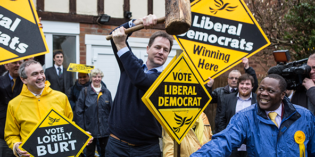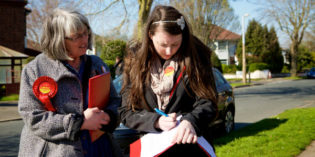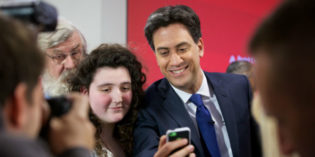Lib Dems

The empty centre: why the Liberal Democrats need to demonstrate competence and unity to win votes
Liberal parties in western democracies which advocate broadly centrist economic policies, such as the Liberal Democrats, have performed badly in some recent elections, even though their policies are often in tune with a large proportion of the electorate. Using survey data Roi Zur finds they have little scope for winning votes by shifting in either direction on the left-right spectrum. Instead they need to demonstrate they are a credible and competent governing party, able to prevent Brexit, and are not just expressing their opposition to it.

Strategic voting in the 2015 general election: why Liberal Democrats didn’t vote for their own party
When do people not vote for their preferred party? Isaac Hale finds that in 2015, Liberal Democrat supporters abandoned the party when they thought it had no chance of winning a seat and a tactical vote could affect the outcome in their constituencies. This shows how in a first-past-the-post electoral system smaller parties can be caught in a vicious cycle of low expectations and strategic voting by their supporters.

How not to recruit postal voters in the UK
Joshua Townsley and Stuart Turnbull-Dugarte tested the ability of parties to recruit postal voters in a field experiment carried out during the 2018 local elections in London. The result? Sending personal letters persuading voters to become postal voters is not an effective recruitment technique.

Behind the scenes of the Conservative–Liberal Democrat Coalition
The UK’s Coalition government of 2010–15 was established with an array of formal agreements and rules for cooperation. However, finds Felicity Matthews, the informal norms and micro-level practices of individual relationships were critical to its operation. This opens up a new area in research, which focuses on the detailed practices of multi-party governance.

England’s local elections 2018: the Lib Dems’ performance was underwhelming – but these were not the elections to judge the party on
Despite media headlines to the contrary, the Liberal Democrats’ performance in the recent local elections was pretty underwhelming, explains David Cutts. But it is the 2019 local elections that will tell us more about the long-term viability of the party, since those will concern a larger number of English districts where the Lib Dems will be seeking to reclaim ground lost to the Conservatives since 2010.

Same difference? Female (and male) members of Britain’s political parties
A recent report by the Party Membership Project run by Monica Poletti, Tim Bale and Paul Webb has shown how the membership of Britain’s main political parties is more like to be male, middle aged and middle class. The results of this survey were explored in a discussion with several leading female MPs, which highlighted common concerns about party behaviours, class and gender barriers that reinforce these disparities in participation.

What’s driving the decline of the centre-left?
Are centre-left parties across Europe facing terminal decline? Drawing on a new book, Rob Manwaring (Flinders University) and Paul Kennedy (University of Bath) argue that an essential element in any robust democracy is an effective centre-left. However, centre-left parties now face a number of major challenges, from the rise of new parties, to the erosion of their traditional support […]

Outsourcing democracy to an algorithm: the tyranny of the tactical voting site
Anti-hard Brexit and ‘progressive’ sites that advised voters which of their local candidates to vote for were a popular feature of the 2017 General Election. Annabel Mullin questions the democratic legitimacy of effectively outsourcing one’s vote to an algorithm, and argues that detailed party manifestos have a deadening effect on political debate. Image: Google’s predictive […]

A return to two-party politics? Don’t believe it
The snap election may have seen the biggest combined vote between the two main parties since 1970, but this is not the result of lost voters returning to their political homes, writes Darren Hughes. On the contrary, it is the outcome of 21st century voting patterns playing out within a broken 19th century voting system. Similar PostsGeneral election 2019: […]



 Democratic Audit's core funding is provided by the Joseph Rowntree Charitable Trust. Additional funding is provided by the London School of Economics.
Democratic Audit's core funding is provided by the Joseph Rowntree Charitable Trust. Additional funding is provided by the London School of Economics.